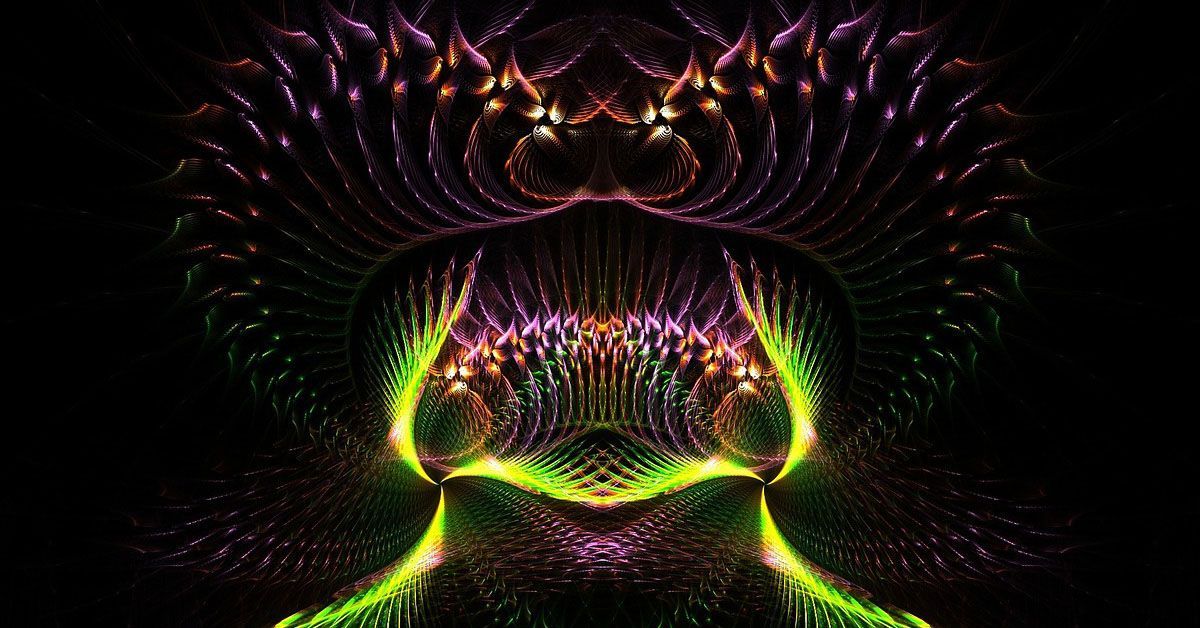$1.5 Million Donation Supports Research on Effects of Psychedelic DMT on the Brain
UC San Diego Psychedelics and Health Research Initiative received the gift from philanthropist Eugene Jhong to further our understanding of the unique states of consciousness induced by DMT and how it could benefit human health
Published Date
Story by:
Media contact:
Topics covered:
Share This:
Article Content
One of the most powerful psychedelics known, N,N-dimethyltryptamine (DMT) has been described as causing imaginative visuals akin to the dream state. It is typically consumed on its own or in ayahuasca, a ceremonial brew that has been used for spiritual and visionary purposes by indigenous cultures for centuries. Some have expressed that DMT helped address psychological ailments such as depression and addiction, promoting emotional well-being. However, the way that DMT impacts the brain, body and health is largely unknown.
A gift of $1.5 million from Eugene Jhong will help launch a new research program within the UC San Diego Psychedelic and Health Research Initiative to learn more about the biological and psychological effects of DMT in humans.
The peak psychedelic effects of inhaled DMT dissipate within minutes. As part of the research supported by Jhong, the UC San Diego research team will implement continuous intravenous DMT infusion protocols to capture what is known as the “extended state” of visions long associated with DMT.
Led by principal investigators Fadel Zeidan, PhD, associate professor in the Department of Anesthesiology at UC San Diego School of Medicine, and Jon Dean, PhD, postdoctoral scholar in the UC San Diego Department of Anesthesiology and director of the Division of DMT Research at the UC San Diego Psychedelic Health and Research Initiative, the study will seek to map the phenomenological, neurological and physiological responses to DMT during the longer windows of time created with infusion protocols.
Interestingly, DMT is present naturally (endogenously) within human bodily fluids. In Dean’s previous research, he discovered that endogenous DMT also exists in the rat brain at levels comparable to serotonin, a neurotransmitter vital to brain function.
“Our goals are to employ multi-modal approaches to study extended state consciousness elucidated by DMT to further appreciate the nature of reality as well as the role of endogenous DMT in the human body. Reliable methods for measuring DMT directly in the human brain and bodily fluids do not exist, so the intriguing possibilities that endogenous DMT may play a role in consciousness, dreaming and protecting the brain from trauma are still scientific speculation,” said Dean.
“Our long-term objective is to gain a better understanding of how DMT and other psychedelics could be used in a therapeutic manner to address pain, trauma and various medical conditions related to the brain.”
“We are beyond grateful to Eugene Jhong for his visionary support of this novel research effort,” said Zeidan. “We will learn more about how the unique effects of DMT on consciousness interacts with human physiology to understand how these profound psychedelic effects evoked by DMT impact our well-being. Our long-term objective is to gain a better understanding of how DMT and other psychedelics could be used in a therapeutic manner to address pain, trauma and various medical conditions related to the brain.”
UC San Diego is currently the only university in the U.S. that has a dedicated division to conduct extended-state DMT research. The study is part of the UC San Diego Psychedelics and Health Research Initiative, which will soon be renamed the Center for Psychedelic Research, a newly approved academic center at UC San Diego School of Medicine.
Eugene Jhong stated, “I am pleased to support this innovative effort to explore extended DMT and am confident it will shed new and important insight into the question of our true nature.”
 LEARN MORE ABOUT HOW YOU CAN SUPPORT UC SAN DIEGO »
LEARN MORE ABOUT HOW YOU CAN SUPPORT UC SAN DIEGO »
You May Also Like
Stay in the Know
Keep up with all the latest from UC San Diego. Subscribe to the newsletter today.




